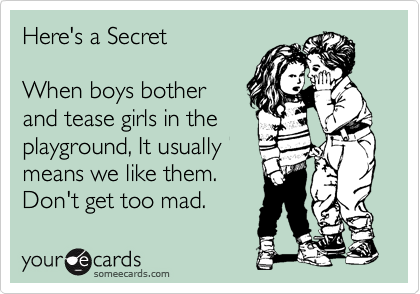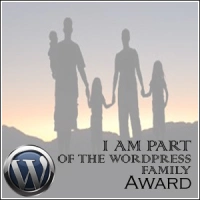It is a sign of the times that several young people do not see anything wrong in using certain words which belong to foul language.
The problem comes from the many American series where swearing seems to be a normal thing and a lot of people think they are more important. For others it is a way to hide their weakness because they did not have a proper or higher education, it shows then their lower standard of eduction.
Many times the many vile words used by a person are also a way to hide several difficulties that person underwent. We often can find it by persons in social distress and having difficulties in sexual relations, being divorced, living in difficult circumstances, poverty and too much pressure. for them it seems a way to cope with it or to give themselves a feeling of more power. What they feel they are missing they want to put in exaggeration by words which can shock or have other people reacting and giving ‘more attention’. those who use a lot of such verbal mistreats should wonder why they like it so much to use those words which give not any more information than they can give with the normal words they can use. What is it adding to their story?
I wonder why this generation don’t hold anything like curse words back. How is it possible that certain people think it makes their entries more enjoyable and that it would give more of a sense of legit connecting communication? They really think they can show off with their so called ‘liberated speech’.
Do they not have enough vocabulary to give their words power?
A ‘queen of the couch’ brought a post filled with just an amount of vitriol though she could make her point better without the foul language, because she really has something to tell about the attitude of trying to turn around the situation of the pest or bully and the one bullied.

Bullying the plague of today
Today we do have to see too much pestering and some do not seem to see any harm in the needling. But what often starts of as a little bit of teasing, becomes taking the mickey out of some one to place yourself on a more important or more liked position. As many use the dirty words to make them more important or more liked, because they think or feel themselves more important, they also start to think they can get some power over situations and over certain persons.
Often the teasing becomes, like the foul language, vexatious. They mostly think the others do have to take it teasing and foul language like a sport. They delight in their foul language as they take a delight in teasing, but forget that their language and actions can be offensive and hurting the feelings of others. It becomes bantering.
For the language it was mostly teenagers who thought when they used such ‘naughty’ words they would be considered bigger, though they forget that it is just the opposite. Worse is it when they grow up and have to make the use of such words even more bigger, because other-while they would not have such an effect any more. More and more they will loose all credibility and shall end up in a little corner of a bunch of people who enjoy themselves in bathing in such language play.
For certain posts on the net it is a pity, because the subject could otherwise earn more credit. So perhaps you may also feel uncomfortable with the message of the Couch Girl and be astonished that this could be a mother, who should be an example for her children, which would not be very promising for the future of those children and their generation.
Therefore I would like to ask you to not let you be distracted from the issue by the language use of the female writer, who wants to sound like a street-worker.
On a “Views from the couch” the female writer sitting on her couch had a conversation the other day and is sure every girl can recall, at least once as a child, coming home and telling their parents, uncle, aunt or grandparent about a boy who had pulled her hair, hit her, teased her, pushed her or committed some other playground crime.
Years ago we did not hear so much about it, but today it has become a serious problem. I can agree with her that when some teasing took place often it was said that it meant the other person liked you.
As I mentioned above, the user of those few letter-words we better not use is also some one who has a daughter of her own. She finds it appalling that “this line of bullshit is still being fed to young children.”
She argues correctly that such way of tackling bullying is not the right way to get rid of the problem.
The teasing easily shall become harassment which shall turn out in a wide range of annoying behaviours of an offensive nature. A big problem is that the offender sometimes is not aware at first of the damage he or she is causing. Others who are around the instigator understand the behaviour is intended to disturb or upset but do themselves not want to come into focus, and find it better to join the for them most stronger one.
Lots of them do not want to know that their behaviour, which sometimes start off as a joke, becomes annoying, a bother, trouble and grows into a repetitive disorderly behaviour. Several studies have proven that the language used at home, with the environment people grow up, plus peer abuse can also have a lasting impact on victims and/or create abusers.

The figures in the picture do say already enough and do let us understand why they use such a language and how they behave – which is really an unacceptable behaviour, but being presented as normal and good fun
The media seem to bombard their viewers with programs were it seems the normal way of behaviour, like in series as in the American television program “Operation Repo” that depicts the world of car repossession with a team that portrays fictionalized tales of repossessions from California’s San Fernando Valley, and other similar ‘truTV’ shows filmed in a cinema verité style. In some teenager shows or series about school life the bullying is presented as something that happens everywhere and is something we just have to take as it comes. It is all presented as the most normal thing.
Today’s generation of teens and twens finds it normal to us a lot of four letter words which asks in a vulgar way to have sexual intercourse, or refer to excrements, or to play around, and that is also what they do like to do a lot, and enjoy watching and talking about. It even seems to be a sport to boast with the amount of girls they could take in their bed. The sport to brag has taken on such form that it seems to show a very unhealthy community, where we do find lots of divorced and unhappy people. Some men switch partner as they change daily their pants.
Worse is now that some, who could be called “perverts” like to present such annoying behaviour and language as the most normal thing of the world. Some try to tell the parents and the children that being verbally and/or physically abused is an acceptable sign of affection. Also in offices they do want to let believe the others that it is a sign of affection. Perhaps, yes it is a sign that they missed a lot of affection in their life, but the ‘avances’ they want to make they certainly do it in the wrong way.
They create an unpleasant or hostile situation for especially by uninvited and unwelcome verbal or physical conduct, and are enlightened whit their position to be able to be in charge. Clearly it is a matter of wanting to be in control and to have power.
The environment should recognise such signals and should not let go. They should react appropriate on it, because in the other case it escalates and becomes worse.
The posters and certain articles in youngster magazines and in the adolescent and adult media belittling the current attitude are creating the possibility of a bigger deformation of a required social attitude for a liveable community.
The writer of the article Thank Me For Punching You in the Face has good reasons to urge her readers and those who bring out such flyers and posters not to go mad at those bullies, to rethink their parenting strategy.
She writes “If you try and feed MY daughter that crap, you better bring protective gear because I am going to shower you with the brand of “affection” you are endorsing.” Clearly she seems only to be concerned about “Her” daughter, but she forget that such an attitude of “laisser fair” has come of the slack pose the community is taking to how people speak to each other and how they treat each other. It is all connected with each other, the way of speaking and they way of showing respect to others.
Clearly she seems only to be concerned about “Her” daughter, but she forget that such an attitude of “laisser fair” has come of the slack pose the community is taking to how people speak to each other and how they treat each other. It is all connected with each other, the way of speaking and they way of showing respect to others.
Taking as elder a disrespect attitude and using taboo words as if common words takes away all boundaries and sets open all gates. The loose behaviour, mouth and body language, the going adrift made that several humans break from the moorings and got in the for them unrestricted world of pleasure and materialism, not having to worry about others.
Those gone adrift do not find themselves gone astray and demand from others to accept their way of life. They even demand that we should teach others their way of talking and living and decided that we should start teaching our sons and daughters to accept being belittled, disrespected and abused as endearing treatment.
“And we have the audacity to wonder why women stay in abusive relationships?”
“How did society become so oblivious to the fact that we were conditioning our daughters to endure abusive treatment, much less view it as romantic overtures?”
Above I gave already some answers and de want to point out that it is also a matter of education and upbringing as well by the parents as by the teachers or educational personal.
Having free sex and free drug use, as well as free use of time, money and noise (music), creates environments where people are confronted with all sorts of violence (noise, vocal violence, intimidation, battering, etc.) Being confronted with ‘gratuit’ violence on the screen, often more words and actions get in the house than we would tolerate from our real life visitors in the house.
Lots of people would love to keep them away from their kids until they decide to teach them respect and boundaries, but do not want to be a good example themselves for their own or for other kids and other adults. How can you demand respect if you are not giving it yourself?

Harassment Unsolicited Unwelcome Humiliating Threatening Actions
We should give clear signals to the community in which we want to live: that teasing or harassment by a male or female classmate or not just okay. We should let the community know that disrespect is never acceptable. that also includes dis-respective language as well as dis-respective behaviour.
It is of no use to start learning your kids words like ass-hole though ass-holes are at the moment a big nuisance. Many actions of dull people wanting to be more important by use of their language or by making certain movements (sign-language) and actions should not be any longer tolerated in our community.
Unpleasant actions should be cut of from the root, and elders should be in charge to control it and to quieten it from the start.
Those in charge should try to help others to see what is an accepted behaviour in contemporary society, and should learn them how to deal with those “assholes” they will encounter throughout their life.
It is no use to use yourself verbal incorrect words trying to tell your daughter to know that if someone is verbally harassing her, she should tell the teacher and if the teacher does nothing, she should tell you, when she herself gets the impression you are using the same weapons as her offender. Children should not be expected to handle bullies on their own. Kids need to be taught that bullying is unacceptable. And because bullying often happens in peer environments, this message has to be reinforced and supported on all levels – at home and in school.
Parents, teachers, and even paediatricians must become more adept and sensitive at identifying possible victims and bullies. The adults who are in a position to intervene on behalf of the victims must band together to take power away from the bully. An important step is identifying and stripping the bully of his or her power because bullies themselves are skilful at avoiding apprehension or punishment. Thus once a bullying situation is revealed and identified, adults must: act immediately and show that such a asocial behaviour is not tolerated in a civilised community. They should trust the victim and give it also the feeling that it can trust them. Furthermore they have to take a strong stand and be consequent in their reaction and in their own behaviour. In case parents do not monitor their own behaviour and aggression they loose all credibility by the victim, and by other persons around. Parents should have the first and last word about acceptable behaviour and present themselves also an acceptable behaviour.
Youngsters should receive clear signs, and it are the adults who should give The example. If they can not keep to certain borders, how should they themselves and the youngsters around them?
In any case, for sure, everybody should know that if someone physically touches a person in the wrong way they have to tell the teacher or other higher placed persons. But we may not underestimate the psychological harassment as well. With words people can do a lot of damage, and this has to be finished as well.
The idea still gets around that boys should have the only right to defend themselves and “if sons came home crying because another male classmate was pushing them, pulling their hair, hitting them or calling them names,” some “would bet dollars to donuts they would tell him to defend themselves and kick the kid’s ass, if necessary. They sure as shit wouldn’t say, “he probably just wants a play date”.”
Boys or girls can be victim of harassment and none of them should be allowed to sit quite in a corner to deteriorate under the psychological and physical damage. We all have to teach our sons and daughters to accept nothing less than respect. But we ourselves should in every instance show that we ourselves also do have that respect and should earn that respect.
As the writer correctly mentions: “I can’t teach my daughter to respect herself if I am teaching her that no one else has to respect her. I can’t raise sons that respect women, if I teach them that bullying is a valid expression of affection.”
So we do have to be careful to come up with certain little “secrets” but also be very careful how we handle things when something went wrong.
We may never forget that we have to be the example for the next generation so that they on their term can be again a worthy example for their next generation.
The world around us gets always younger and younger. The babies from yesterday are pushed aside by the class of today. Our behaviour and our language shall determine how they are going to speak and going to treat others.
Like getting older is an experience only to be discovered in relation to others, we are able to give some direction in the cause of the future generations, and we should take it conscientious and not trifle with it.
The abandoned life of the materialists now should get to see that there are more important values that all those gadgets around us. Respecting the more important values of life they shall enjoy more the value of having respectful people around them.
Let us never loose sight to forget nothing venture, nothing grain, as you saw , so shall you reap.
Related articles
- Jeremy Clarkson’s Top Gear criticised for foul language (telegraph.co.uk)
Most of the bad language related to a sketch in the show in which hosts Clarkson and Richard Hammond attempted to choreograph a car chase in the style of 1970s police drama The Sweeney.
+
there was no need of the language, and some of the attempts to ‘bleep’ were pathetic.
+
If this isn’t a family show, then get it on after the watershed, put in whatever sex, violence and swearing that you feel is appropriate, and stop the marketing of products clearly aimed at children. The BBC can’t have it both ways. - Foul Language (dailymusingdotcom.wordpress.com)
Is it an age thing? I cant stand bad language and disassociate myself from people who use it because it makes me cringe. I think that it’s not only a sign of ignorance, it’s also a sign of showing off. If someone starts swearing during a conversation, I’ve already lost a lot of respect for them. If someone occasionally says something out of frustration, I’m a tiny bit more tolerant to that, but I dont tolerate useless swearinggenerally.
+
The corruption of language in public culture is just one aspect of the general coarsening of life which is taking us down into the pits. Television, in particular, has now reached such depths it is hard to imagine where it can go next.
- Foul Language is Not Rude in The Company of Friends (socyberty.com)
Maybe your friend needs to use foul language to drive home to you just how bad it is! - Your Language is Offensive (viewsfromthecouch.com)
If you want to read about puppies and angels, you hit the wrong f*****g link.
+
“here are a list of swear words that will appear in past and future posts on MY blog: hell, shit, damn, ass, asshole, fuck, fucking, mother fucker, mother fucking (lots of variations of the word FUCK), bitch, dick—-well, pretty much, if you can think of it, there is high potential it will appear on this blog. If you have a problem with that, fuck off.”
(This just shows off the mentality of a lot of people today. They may use any word they like and do anything they wish, but do not dare other persons use something of these words or actions against them or their daughter. ….) - Bullying and the Special Needs Child (education.com)
Emerging research indicates that a child with a disability is more likely to be physically or verbally bullied than his typically developing peers. As a special needs teacher with over twenty years under my belt, I can attest to this data. However, by teaching children to understand that not everyone sees the world the same way, parents can facilitate understanding and healthy interaction between all kinds of children.
+
Teach children about body language.
+
A bully will most likely demonstrate cocky movements, loud voice, and mocking facial expressions.
+
Use appropriate social language.
+
Children should be ready to take safe action such as leaving the situation or telling an adult.
+
Bullying in this case may also be the result of misreading social cues or lacking the communication skills to ask for something appropriately. Developing skills in social confidence can reduce the tendency to bully.
+ Cognitive Development Intervention + Character Development and Your Child + Major Depression in Children and Adolescents + Intelligence and Learning - Bullies: More Than Sticks, Stones and Name-Calling (education.com)
The search for the roots of violence has included a closer look at interactions once thought innocent.
+
when the teasing turns to taunting and the child is afraid that any attempt to stop the aggressor will cause harm, the situation is more serious and possibly crosses the line into bullying.
+
Current definitions of bullying behavior stem from the original research conducted with Norwegian and Swedish students by Dan Olweus, who stated, “a student is being bullied or victimized when he or she is exposed, repeatedly and over time, to negative actions by one or more other students. Negative actions can include physical contact, words, making faces or dirty gestures, and intentional exclusion from a group. An additional criterion of bullying is an imbalance in strength (an asymmetric power relationship).
+
Bullying is a pervasive problem for school children in the U.S. as well as internationally. Studies of incidence range from a high of 80%, where “only 20% reported no bullying behavior” in a 30 day period (Bosworth et al 1999) to studies showing a conservative 10% of kindergarten through high school students being bullied (Hodges and Perry, 1996). Some groups of children are also at greater risk, for example, Garrity & Barris (1996) reported on a study finding “that 33% of mainstreamed, special-needs children had been targets of bullying, compared to 8% of their normal classmates” (p. 97).
+
Coercive parenting. Parents who use power assertive techniques, especially physical punishment, yelling, and name calling, often generate fear about punishment in their children. These children also tend to identify with and model such aggressive authority figures. - RCASA Friday Facts: The Truth About Bullying (rcasa.wordpress.com)
Every day thousands of teens wake up afraid to go to school. Bullying is a problem that affects millions of students, and it has everyone worried, not just the kids on its receiving end. Yet because parents, teachers, and other adults don’t always see it, they may not understand how extreme bullying can get.
+
Verbal bullying can also involve sending cruel instant or email messages or even posting insults about a person on a website — practices that are known as cyberbullying.
+
Although most bullies think they’re hot stuff and have the right to push people around, others are actually insecure. They put other people down to make themselves feel more interesting or powerful. And some bullies act the way they do because they’ve been hurt by bullies in the past — maybe even a bullying figure in their own family, like a parent or other adult.
+
Most people hesitate to speak out because it can be hard. It takes confidence to stand up to a bully — especially if he or she is one of the established group leaders. But chances are the other students witnessing the bullying behavior feel as uncomfortable as you do. They may just not be speaking up. Perhaps they feel that they’re not popular enough to take a stand or worry that they’re vulnerable and the bully will turn on them. Staying quiet (even though they don’t like the bully’s behavior) is a way to distance themselves from the person who is the target. - bully, be yourself! + school’s out (pasupatidasi.wordpress.com)
ever notice how dismissive adults are of children?
+
i’ve seen parents, who love their children, simply not hear them when they try to convey something to them. even very important things.like gender identification. like bullying.
+
feeling the sexism of our society in which females are picked on just for being females.
+
so fearful of being who they are that they attack others for being mirrors that show them their self? or should i tell them to check their makeup, as it were. should i say “hey bully, be yourself!” - Shucksy darn oh pooh! (lettersfromalostsoul.wordpress.com)
In an effort to improve the “atmosphere” at work, we used the above mentioned book to create our own version of foul language. This allows our team to swear at random while not offending other co-workers or customers.
What, you may ask is the most commonly used word? I am so glad you asked!
Shucksy darn oh pooh!
Try using this alternative in place of a foul word, and see just how many quizzical looks and even smiles appear. I guarantee it will be a conversation starter or at least an ice breaker! - Can We Stop the Gay Bullying Epidemic? (education.com)
We’ve all heard the expression: “Sticks and stones may break my bones, but words will never hurt me.” But what happens when hateful words build and multiply until they’re too much for one teenager to bear? No longer an issue of harmless playground teasing, bullying can mean the difference between life and death—and it has for a number of gay teens whose suicides have made headlines in the past month.
+
Laura Kauffman, Ph.D. says that anti-gay vernacular runs rampant throughout today’s everyday speech, too. “Many students—and adults—can still be heard saying, ‘That’s so gay.'”
+
Indirect Aggression Amongst Teenage Girls and How Parents Can Help + Talking To Teens About Violence + Risky Behaviors and Bullying Toolkit + Childhood Victims and Bullies and Their Parents + Poverty and Equality - Are You Being Bullied or Teased Because of Your Weight? (education.com)
- Apologies with curse words. (simplifiedstories.wordpress.com)
I’m sorry for all of the curse words too. - Explicit Language (For Adults Only, I Guess)(ringingtrue.net) proves how many people do find certain language today pretty tame response to the problems we do have to encounterWe finished evaluating the songs on Last Past the Post (the new Acoustic Disturbance CD) for foul language and found that iTunes definitions require us to classify seven of the twelve songs as “explicit.” Since one is an instrumental, that means only four songs are allegedly suitable for children’s ears.
- Where SHIfT Happens… (imuslims.wordpress.com)
Anas bin Malik said: “The Prophet was not one who would abuse (others) or say obscene words, or curse (others)…” (Bukhaari) And Abdullah bin ‘Amr said: “The Prophet never used bad languageneither a ‘Faahish nor a Mutafaahish. He used to say ‘The best amongst you are those who have the best manners and character.’ (Bukhaari)
And Abdullah bin ‘Amr said: “The Prophet never used bad languageneither a ‘Faahish nor a Mutafaahish. He used to say ‘The best amongst you are those who have the best manners and character.’ (Bukhaari)
+
The Prophet said: “O ‘Aaishah! Have you ever seen me speaking a bad and dirty language? (Remember that) the worst people in Allah’s sight on the Day of Resurrection will be those whom the people desert or leave in order to save themselves from their dirty language or from their transgression.” (Bukhaari)
+
Bad words show disrespect to those being spoken to and a total lack of self-respect. The one who stays away from filthy language is not being a prude or old-fashioned; rather he /she is a Mu’min and a follower of the one with the best manners ever…that is, the Prophet. - You Didn’t Thank Me For Punching You in the Face (pinkatenchanted.wordpress.com)
Never ever give false impressions to young children, because we are actually distorting the shape of their future. - Parenting Solutions: Teased (education.com)
Can’t handle it when friends poke fun, is overly sensitive to verbal teasing, often overreacts to playful banter, feels picked on - Right, Wing-Nut! (jerseynut.blogspot.com)
There has never in the history of the world been a people better mannered and less inclined to insulting acts of prejudice than today’s Americans, yet we’re supposed to believe that the nation is seething with “harassment” and “discrimination,” women being groped in every business office and crosses burning on every lawn.
+
Isn’t denial of the existence of sexual harassment now harassment in and of itself? - Tips for Parents: Teasing, Bullying, and the Role of Friendships (education.com)
Often, I think we expect really bright kids to act their intellectual age and forget that deep inside they really are kids. This becomes even more of an issue when we grade accelerate.” Children who had problems with friendships prior to being accelerated may be at increased risk for them after acceleration.
+
Boys engage in bullying about three times as much as girls and usually bully in groups. If the victim is an unpopular child, bullying groups are joined temporarily by others. I list steps to detect bullying in my Good Friends book that involve getting the school involved. Girls have a subtler form of bullying called “relational aggression” defined as girls who: (1) exclude others from their group out of anger, (2) tell children they will stop liking them unless they do what they say, and (3) ignore people when mad at them.
+
If rejection has been a recurrent problem among same-age same-sex peers. This may indicate that there is something the child is doing that is violating “the golden rule” making him\her little fun to play with. Rejected children are viewed by peers as domineering, bossy, intrusive, or critical. - It’s not cute. It’s abuse. (bluejaysway.wordpress.com)
- You Didn’t Thank Me For Punching You in the Face (denaliwinter.com)
Being mean to someone because you like them is unacceptable and a poor excuse for being an asshole. We need to teach children this from day one, not drill this bullshit into their little heads and expect them to grow up and magically learn to respect each other and themselves. - Curse Words (socyberty.com)
When a person chooses to eliminate curse words from their vocabulary, they do so because of the meaning of those words. However, I am a bit baffled by why some of these people choose to use substitutes for these words. Do these words not have the same connotations as the curse words that you try so hard to avoid? For example, many people may say “darn” instead of damn. I see absolutely no difference when you simply replace the curse word with darn.**
Update July 2012: - Language lessons: Terry to help eradicate on-pitch behaviour concerns in PFA meeting (mirror.co.uk)
- Punish bad language says Carlisle (bbc.co.uk)
- VIRAL: Karen Klein Gets Bullied by Middleschoolers with Insults and Foul Language (ibtimes.com)
The internet community is outraged by a video clip showing middle schoolers as they verbally abuse an elder woman on the bus. In a media interview, victim Karen Klein revealed it was not the first time the kids had done that to her. - Facebook software screens chats for criminal behaviour (todayonline.com)
- We’ve become numb to foul language (thegazette.com)
I agree with the column by Amy Hamisch (“Lack of civility becoming the norm,” July 5) in regards to today’s expletive language. Talk show hosts and hostesses, their guests – it’s disturbing, disgusting.
The adage is that if you hit your thumb with a hammer often enough, it gets numb. We are getting well beyond the point, doncha think?





























 Biblestudents – Bijbelstudenten
Biblestudents – Bijbelstudenten 0 + Bloggers for Peace
0 + Bloggers for Peace Free Christadelphian Ecclesia
Free Christadelphian Ecclesia Hoop tot Leven – Redding in Christus
Hoop tot Leven – Redding in Christus Vrije Broeders in Christus (Free Flemish Christadelphians on Wordpress)
Vrije Broeders in Christus (Free Flemish Christadelphians on Wordpress)















Pingback: Kinderen mogen falen | Marcus' s Space
Pingback: Alternative four letter words | Marcus' s Space
Pingback: More-Letter-Words « Christadelphians : Belgian Ecclesia Brussel – Leuven
Pingback: יהוה , YHWH and Love: Four-letter words « Christadelphians : Belgian Ecclesia Brussel – Leuven
Pingback: Judeo-Christian values and liberty « Christadelphians : Belgian Ecclesia Brussel – Leuven
Pingback: Christian values and voting not just a game | Marcus' s Space
Pingback: A world in denial « Christadelphians : Belgian Ecclesia Brussel – Leuven
Pingback: The trigger of Aurora shooting | Marcus' s Space
Pingback: Built on or Belonging to Jewish tradition #4 Mozaic and Noachide laws | Marcus' s Space
Pingback: Migrants to the West #7 Religions | Marcus' s Space
Pingback: Some one or something to fear #3 Cases, folks and outing « Stepping Toes
Pingback: Growing rift between observant parents and their children | Bijbelvorser = Bible Researcher
Pingback: The Field is the World #4 Many who leave the church | Bijbelvorser = Bible Researcher
Pingback: What makes you following Christ and Facebook Groups | From guestwriters
Pingback: Signs of the times – As the Day approaches | From guestwriters